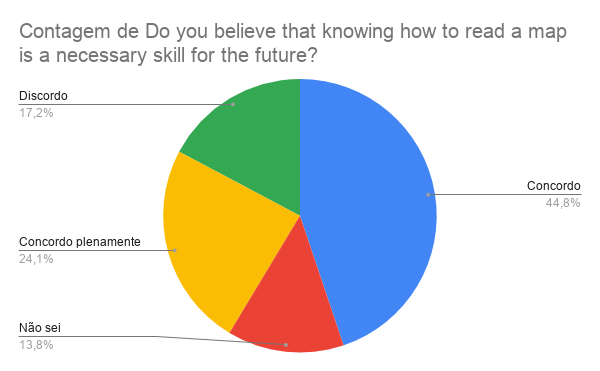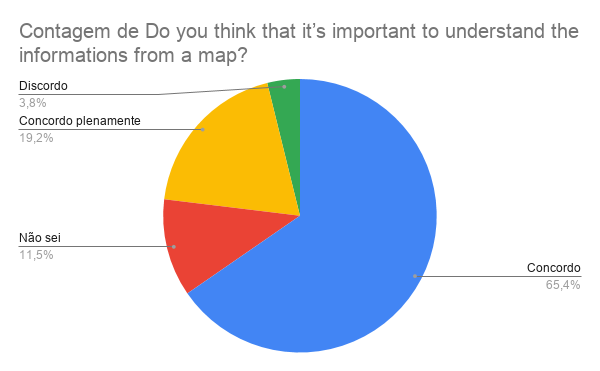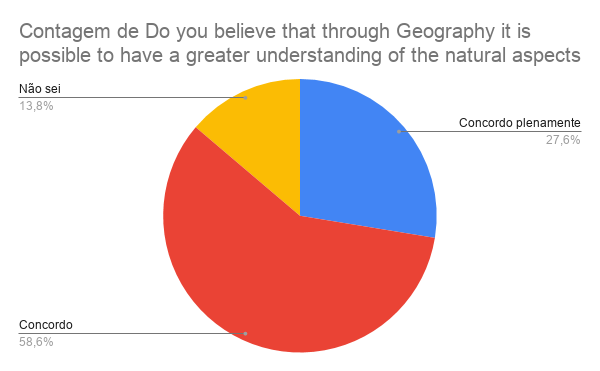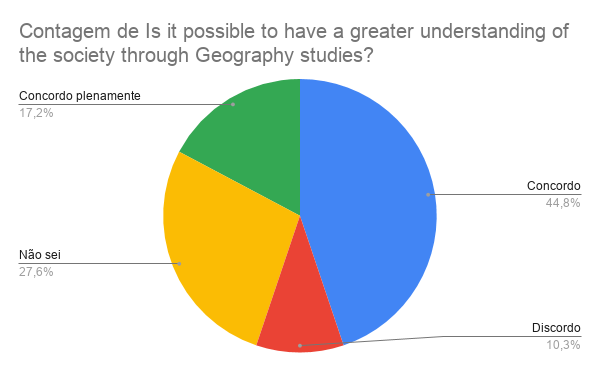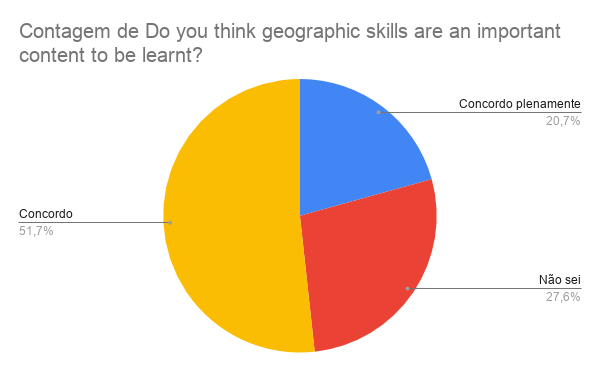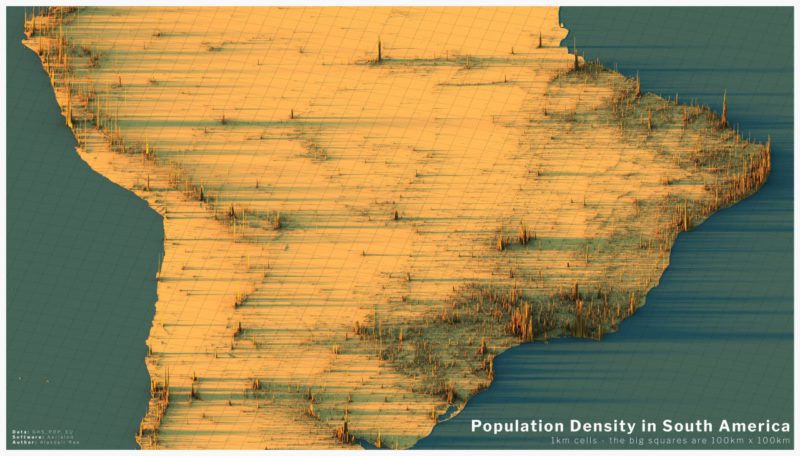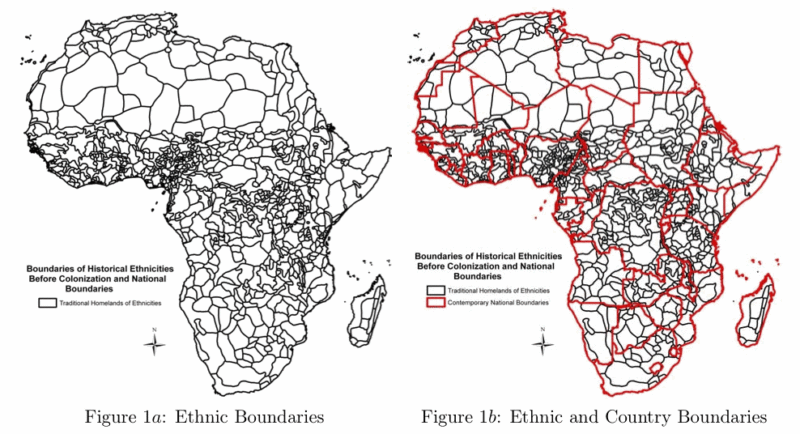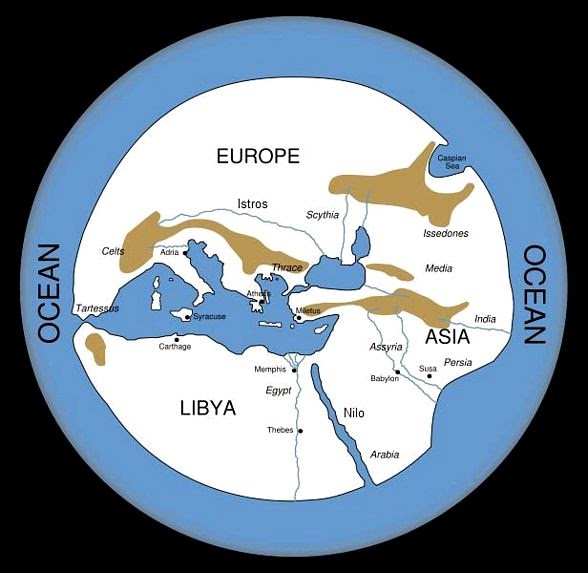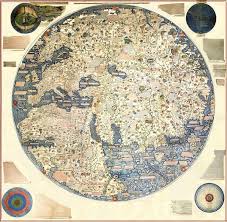Geography within Social Studies
How can the major social sciences (Anthropology, Archaeology, Economics, Geography, History, Law, Linguistics, Politics, Psychology and Sociology) be approached in depth in Social studies classes, valuing the humanities and its individualities in our context?
General topic of interest
This study has as principle, to analyze the importance of the geographic studies in the school context in the Middle School.
This theme is very much connected with my academic history, since the study of society, the dynamics of the land and how they are related are fundamental to the construction of a better society, more inclusive and more aware of the differences between human relations.
Participants
Students will provide, through a survey, how important the study of Geography is in the school context, in this case, Middle School. Added to the survey, I will make a brief demonstration of some important topics that need to be addressed, through the geographical view.
Data collecting approach
This survey was the main reason for this research. In addition to that, maps and books were used as a source of information.The reason for using a survey is due to the fact that students leave school without having the necessary skills to do a cartographic analysis, for example.
Data collecting example
For this survey it was necessary to create a Google Forms( https://docs.google.com/forms/d/e/1FAIpQLScXo_GcVfTPBL821v8e-_KtjUzXwlH_wYa3Ta2oe7fouNIvEQ/viewform?usp=sf_link), where students would answer, according to their experiences at Concept School, how much of the Geographic content was studied and how much of this content could be studied if there was a Geography class at Middle School (which part of the Brazilian curriculum).
In addition to this survey, books and maps were used to exemplify the importance of the content to be studied.
Emerging results
Analyzing the results of the survey done with the learners, we could observe that the skills and geographic knowledge are necessary and desired by the students of the Middle School.
From interpreting the information on a map, its colors, scale, information, symbols and formats, to understanding the perspective of why it was made that way.
Reflections
The result of this research shows that, despite encompassing the most diverse areas of human sciences in the school context, the term Social Studies simplifies centuries of studies, books and thinkers important to understanding society, in a transdisciplinary history class. History itself already bears a lot of responsibility on what we should know, however, the other human sciences, in the case of this study, Geography, need to have an active voice and be studied so that tenuous aspects of our daily life do not go unnoticed. . Knowing how to carry out a cartographic analysis is essential to understand, for example, population movements through financial capital and how this translates into everyday life, or the transformations of the first maps made and their difference to those of today, or how river basins delimit the borders of countries, or the differences of Africas (ethnic and post colonized), or how a religious who lived in a monastery built a world map in the 15th century just listening to reports from sailors about the places they passed and what impact it had on the way we view the world and make maps.
Next steps
One of the many facets of Geography is using maps to understand human relations with the environment and through them find tangible ways of proposing changes in society that aim to transform people's lives and do not eliminate the need for development through capital.
For this matter, it is necessary, even if the term social studies is used, students have geography classes with a qualified professional. Geography is a science that begins in Greece and over the centuries it is transformed and is approached by the most brilliant minds the world has ever known. From Immanuel Kant to the Brazilian Milton Santos. From Heraclitus to David Harvey.

